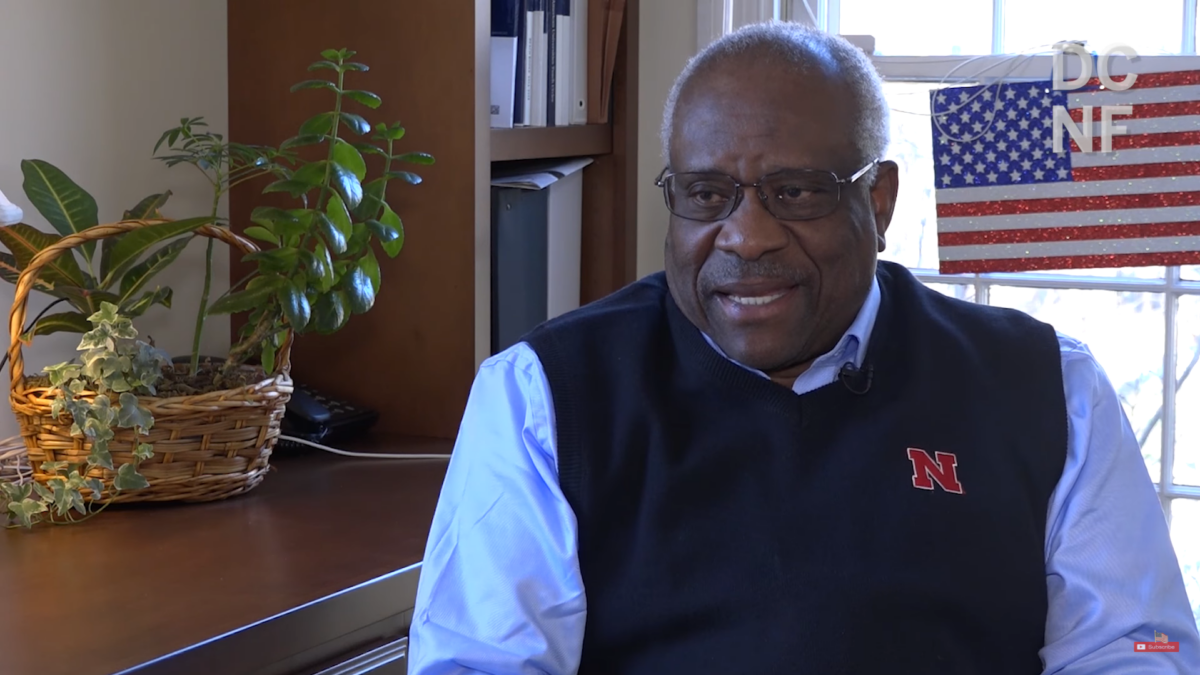That darn Clarence Thomas is at it again: giving all of us a lovely picture of why, far from being repressive, a mutually supportive marriage is empowering for women (and men).
In a 2018 interview, Ginni Thomas — who has been married to the Supreme Court justice for more than three decades — asked her husband about the best part of being on the bench.
“It’d be impossible without you. It’s sorta like, how do you run with one leg? You can’t. It makes it whole when I have my wife,” was his touching reply.
Contrary to the deranged voices suggesting this clip is any kind of dunk on the Thomases, Clarence’s praise of Ginni reflects a beautiful truth about marriage. When two people become one, they are both part of something greater than themselves — and living for someone outside of themselves (even more true for parents of children!). Marriage and family are no substitute for finding purpose and meaning in one’s relationship with God, but they are institutions designed to reflect and complement the eternal.
While cultural, political, and career investments can all be gainful, rewarding, and even necessary — and often have meaningful human impacts — investing in another eternal human soul carries infinitely more reward (though they are far from mutually exclusive). This isn’t limited to marriage; it’s the reason parents, teachers, mentors, pastors, friends, doctors, missionaries, counselors, and anyone who serves their fellow man sees so much worth (and finds so much satisfaction) in what they do. It’s the invested time and energy that people on their deathbeds never regret.
For men and women alike, there is a deep dignity conferred by knowing that someone else lovingly looks to you and depends on you. Good men take pride in protecting and providing for their families and pleasing their wives. Good women take pride in similarly serving and loving their families, knowing that they are cherished and that, as Clarence said so adoringly of Ginni, their husbands’ lives would be “impossible” without them.
In our individualist and postmodern society, both sexes are bombarded with the lie that living for your own pleasure, aggrandizement, and status is the most fulfilling thing you can do. It’s the fable that “self-care” doctrine is built on and that tricks young people into running from marital commitment and sacrifice. It’s the self-centered paradigm in which the physical, temporal, financial, emotional, and spiritual obligations of having children make little sense, leading to nearly half of non-parent adults under 50 saying they “likely” will never have kids, a majority simply because they don’t want to.
But our souls are designed for fellowship, love, and self-sacrifice, within and outside of marriage. We sow seeds of growth in others and are built to delight in their fruition.
More often than not, we have the added blessing of maturing ourselves, especially in a relationship where that investment is mutual. In a healthy, supportive marriage, a wife’s love, respect, and influence make her husband better, and a husband’s love, respect, and influence make his wife better.
We all desire to do something that matters and to leave a lasting impact where we go. We seek to make a difference via our careers (not a bad thing!), to leave behind us a flattering reputation, and to feel that our lives have meant something. In a world where so little is enduring, what could be more satisfying than knowing you have participated in the cultivation of a soul?
Marriage is designed to empower men and women to do just that. Simultaneously, it fosters respect, affection, and deep appreciation for that outpouring of love. A spouse who recognizes and cherishes that love — for women specifically, a man who does so — offers an empowering reward that none of our world’s ephemeral trinkets can.









